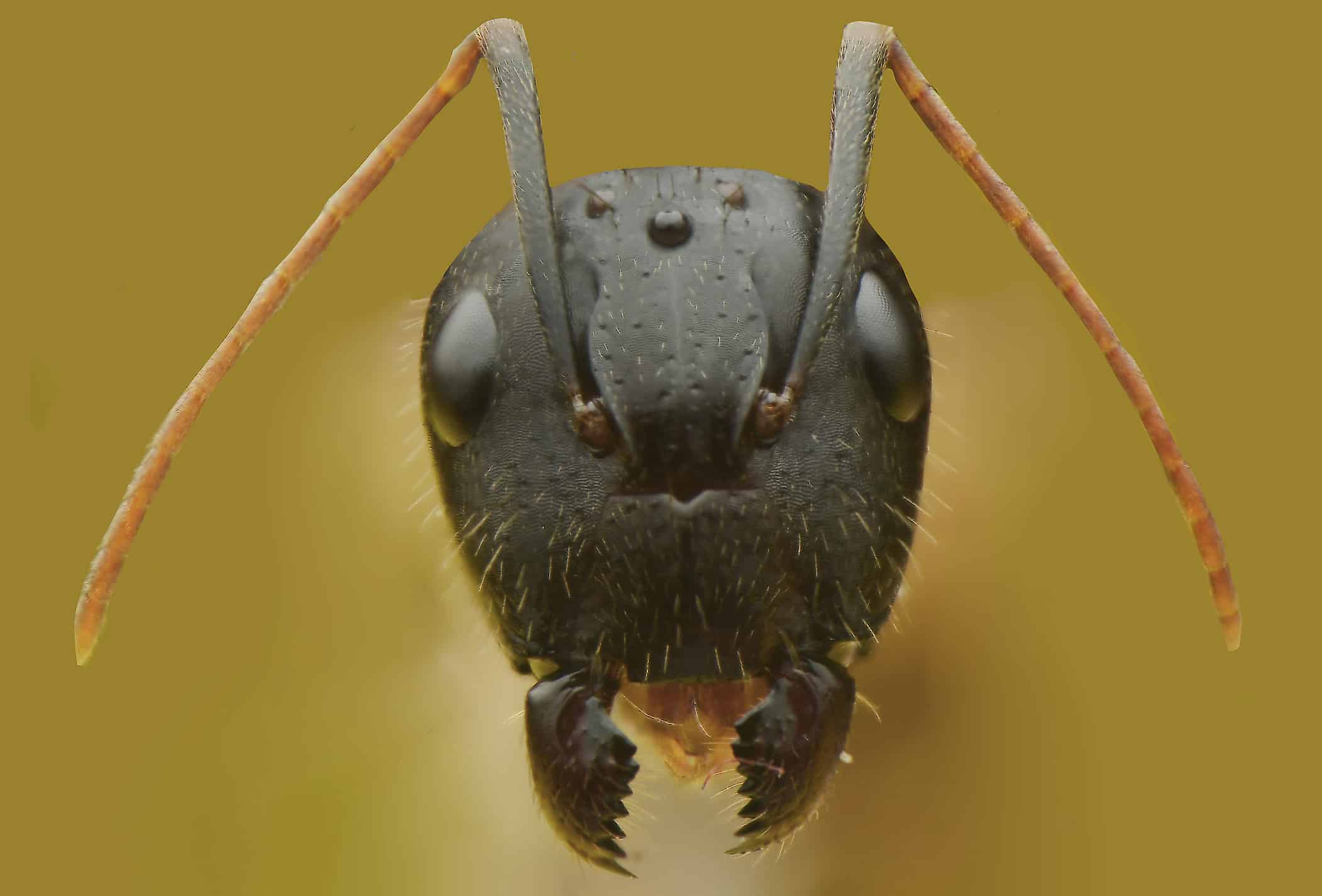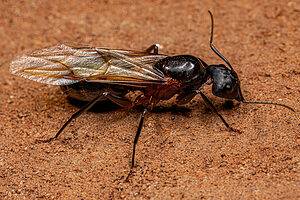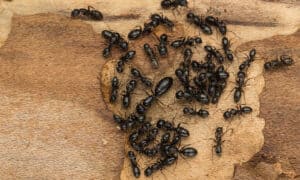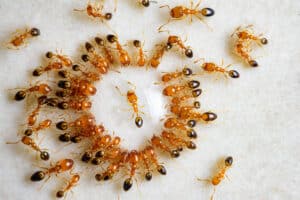This may seem like a strange question, but it has a pretty interesting answer. Many ants do have a smell, depending on their exact species.
All ants produce pheromones, which make them smell to each other. However, humans cannot pick up on these pheromones. There are a few smells that ants produce that humans can pick up on, though.
Below, we’ll go through these smells one by one:
1. Citronella
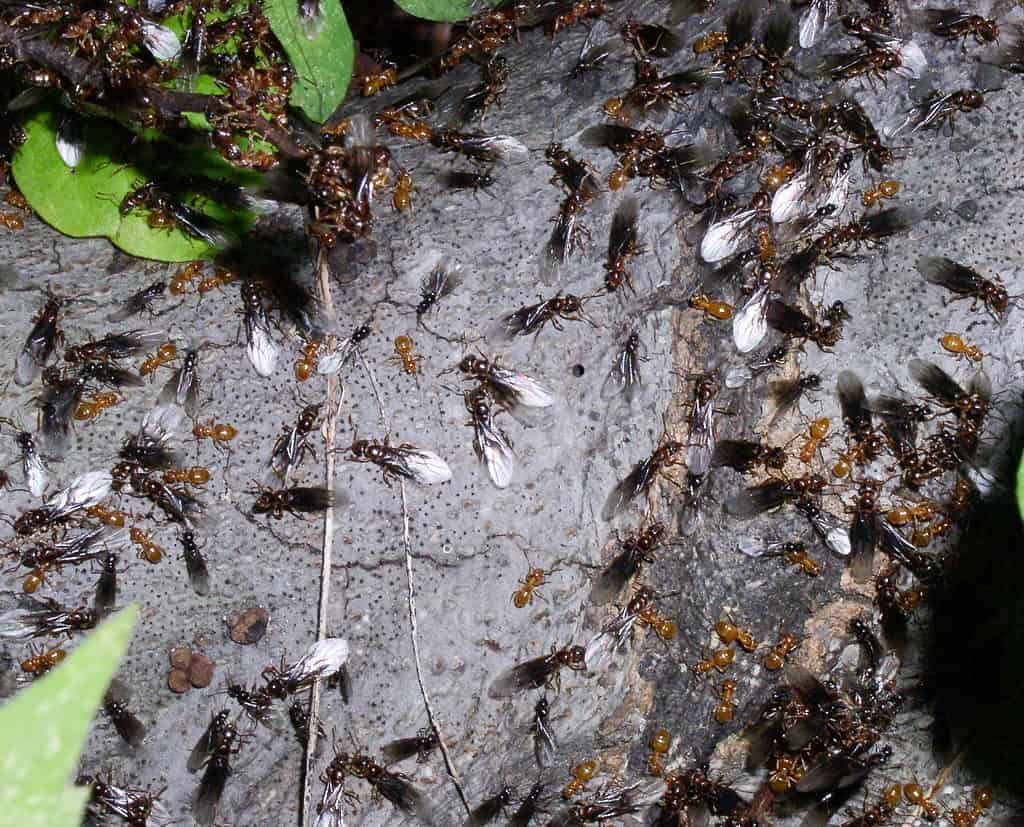
Citronella ants get their name from the citrus scent they produce when harmed or fearful.
Citronella ants smell like citrus – hence their name. These ants are also known as the greater or lesser yellow ants. These small yellow ants live underground and usually consume aphids and mealybugs. These two insects feed on roots, so they are found underground and close to the ground – right where the ants can find them.
Citronella ants do not have stingers, so they are completely harmless to humans. However, they have a nifty defense mechanism. When harmed or fearful, the ants produce a citronella smell.
Other insects do not like this smell. Therefore, it often fends off many of the ants’ biggest enemies. It also warns other ants of the danger.
Therefore, if you crush them, you’ll likely notice the smell of citronella in the air. Some people describe this scent as more like lemon than citronella, though.
2. Chocolate
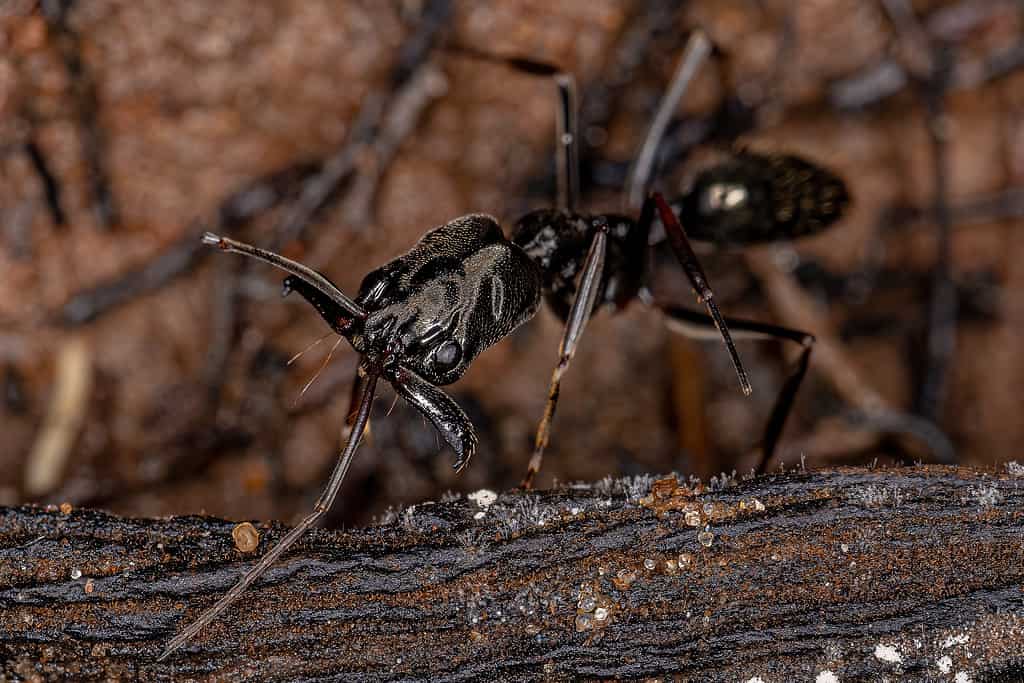
The trap-jaw ant, known for its powerful jaws, releases a chocolatey scent when in danger.
©iStock.com/ViniSouza128
Trap-jaw ants belong to the genus Odontomachus. As their name suggests, they’re known for their powerful jaws, which they use to hunt other insects. They’re one of the more ferocious ant species out there.
When in danger, they release a pheromone that warns other ants (and calls them to help). This pheromone is one of the few we can detect, but it smells like chocolate to us. Therefore, if you crush them, these ants will smell like chocolate.
These ants are found in tropical and subtropical regions of the world.
3. Vinegar
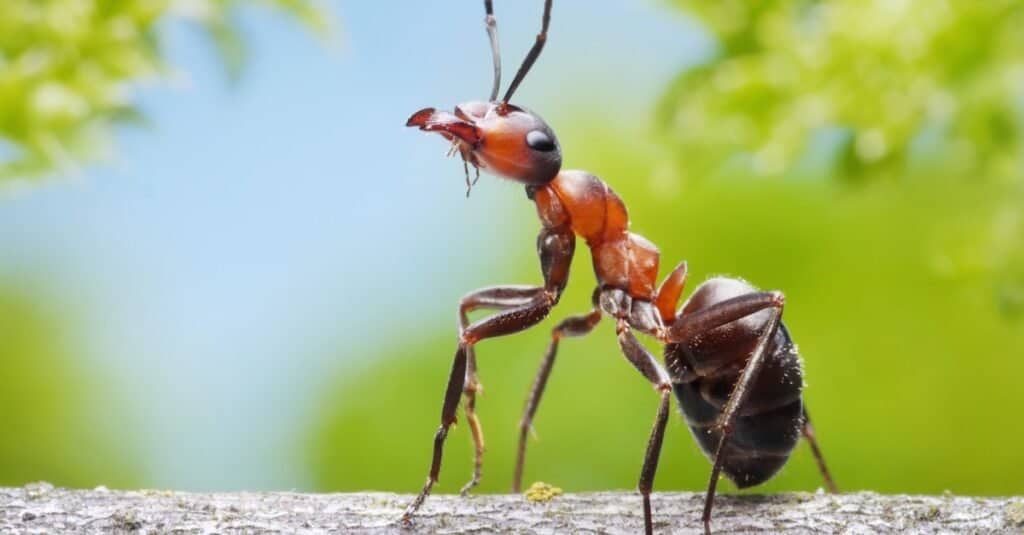
Some species of ants, such as carpenter ants, have been known to spray a substance that is similar to the scent of vinegar.
©iStock.com/Antrey
Ants can also smell like vinegar. This smell is caused by formic acid, which several species of ants spray as a defensive mechanism. This substance is an irritant, especially if it gets in the eyes of whoever is upsetting the ants. Like many smells, it may also serve as a warning to other ants about the danger.
Some common ants that spray this substance are wood ants and carpenter ants.
With that said, not everyone can smell formic acid. It appears that smelling it is somewhat reliant on genetics. Therefore, some people may not detect this scent at all.
Furthermore, how strongly people smell this vinegar also varies. Some may find the odor mild or even pleasant. Others may find it unbearable.
4. Olive Oil
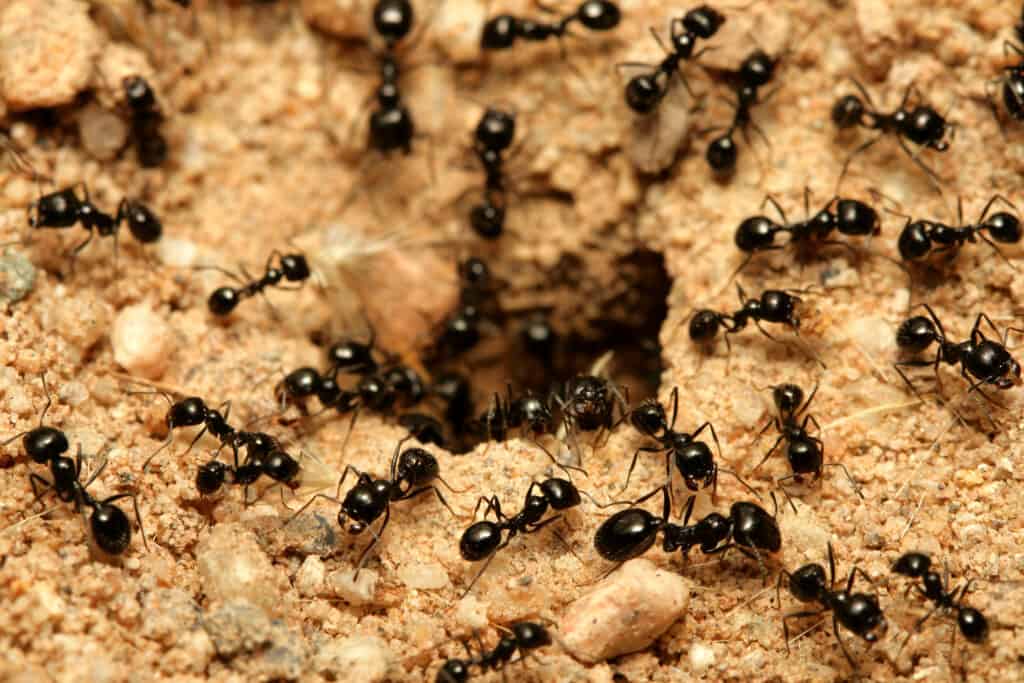
When ants die of natural causes they have been known to release an olive oil type scent, signaling others to remove their bodies from the area.
©iStock.com/Cabezonication
One of the stranger smells ants can produce is olive oil. Ants don’t actually produce olive oil. However, they can produce oleic acid. Many ants produce this scent when they die of natural causes. It signals other ants to remove the dead ant from the area, as dead ants can attract diseases or predators.
It’s produced by many different species.
With that said, ants produce very little of this chemical individually. Therefore, for most humans to pick it up, there have to be many dead ants lying around.
Thank you for reading! Have some feedback for us? Contact the AZ Animals editorial team.

